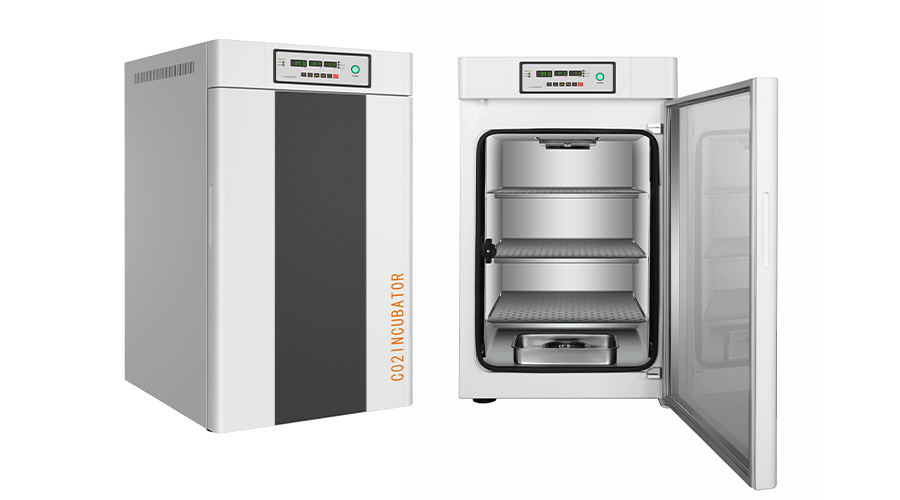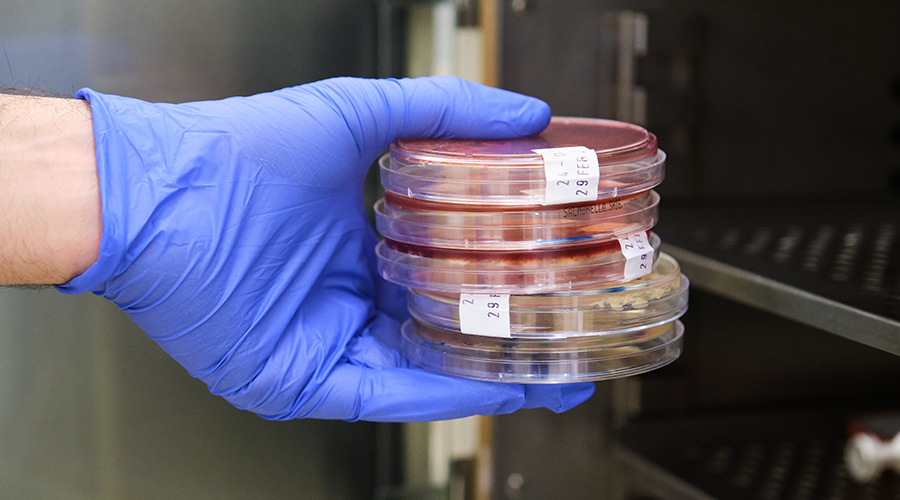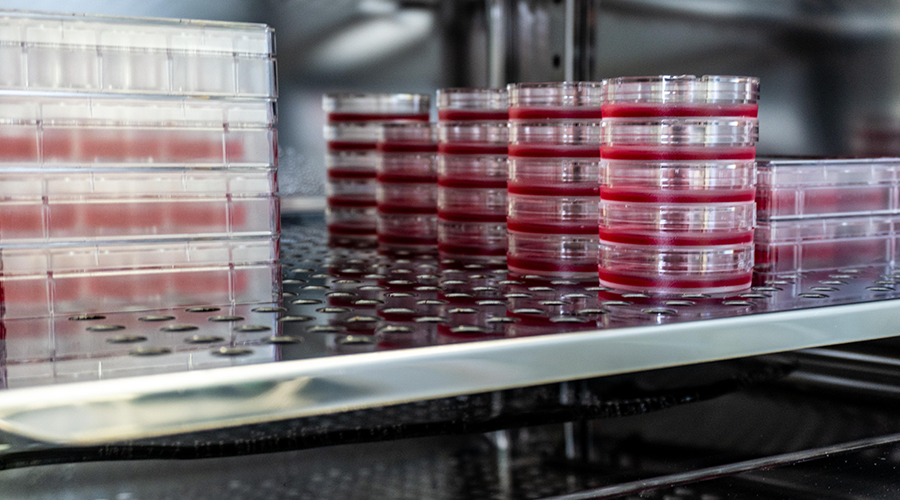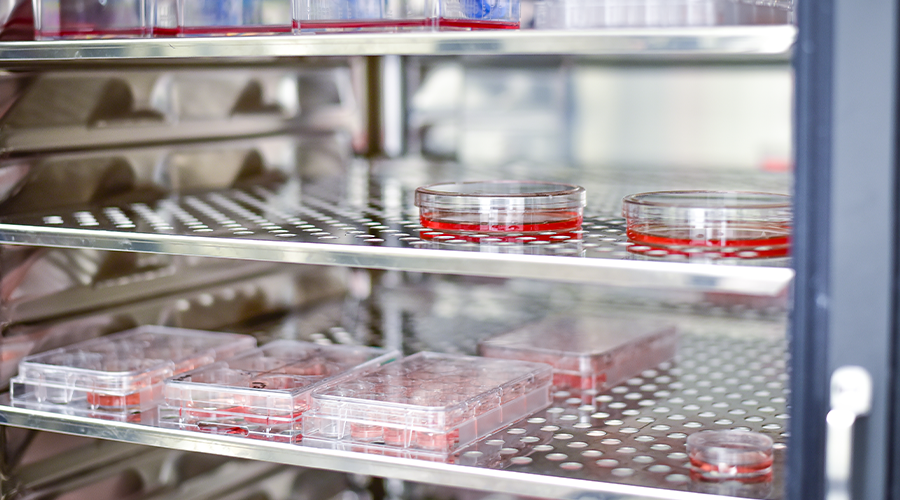Lab CO₂ or carbon dioxide incubators are important pieces of equipment that provide a precise environment for the growth of biological or cell cultures. These types of CO₂ incubators are often used in pharmaceutical industry or medical research labs. Our complete guide of lab CO₂ incubators will cover what a lab CO₂ incubator is, how it works, why CO₂ is needed in the incubator, and what applications CO₂ incubators are used for in labs.
What is a Lab CO₂ Incubator?
A Lab CO₂ incubator is a sophisticated piece of equipment in the form of a chamber that provides a temperature controlled environment used in cell culture and research. The inside of a Lab CO2 incubator is usually lined with shelves covered in plastic liners where samples are then stored during processing. These liners protect the samples and allow air flow to pass around each sample individually. The casing of a Lab CO₂ incubator is often made of stainless steel to protect samples from moisture or other contaminants. Lab CO₂ incubators regulate humidity, temperature, and pH levels with carbon dioxide control. The main purpose of a CO₂ incubator is to create as natural a growth environment as possible for cell and tissue culture.

Vacc-Safe CO₂ Incubator
Available in 120L, 180L and 260L, the Vacc-Safe CO₂ Incubator incubators provide a safe, reproducible growth environment for cell cultures with unsurpassed natural simulation to ensure optimum growth conditions at all times. Features include:
- Incubates at Room Temperature and 5 – 60°C
- 125°C Dry-heat Sterilization
- 304 Stainless Steel Interior
- Inner glass door
- Single LED display
- Security features
Why Is CO₂ Needed In An Incubator?
CO₂ is needed in an incubator when the purpose is to stimulate cell growth. For cells to survive, they need optimal conditions and the addition of CO₂ helps provide these conditions. CO₂ regulates the pH culture to maintain the pH within the physiological range for optimal cell growth. This provides the ideal conditions for cell growth and contamination protection. The main reasons CO₂ is needed in an incubator are:
- For cell culture: Cell culture is the process by which cells are grown outside their natural environment in controlled conditions. For cells to grow they need to be in an environment that stimulates the human body which means a specific temperature, humidity and gas composition. A CO₂ incubator provides these conditions. Without CO₂, cells would not survive for more than 2 hours.
- To prevent pH shift: The level of pH is important for cell culture as any changes can alter the way cells metabolise and grow. By having CO₂ in the incubator, the pH can be stabilised. That is because, when carbon dioxide dissolves in water, it forms into carbonic acid which dissociates into bicarbonate and hydrogen ions. This reaction is similar to how the human body regulates its pH levels to remain within the correct physiological range.
- For cellular metabolism: Elevated CO₂ levels may enhance some cellular processes. Similarly to how plant cells need CO₂ for photosynthesis, human cells require stable CO₂ to ensure the optimum pH for enzyme activity.
- For microbial contamination control: Microbial contamination is when microbial agents like bacteria or viruses are unintentionally introduced into a sample. With the use of CO₂ in an incubator, there is less likelihood of contamination. The CO₂ can inhibit the growth of bacteria or fungi that otherwise may flourish without it.
How Do CO₂ Incubators Work?
A CO₂ incubator has a completely sealed off interior in order to create a set atmosphere within the unit. CO₂ incubators have a glass door so technicians can see the samples during the growth period. The inside of a CO₂ incubator is made of materials like stainless steel. It is designed with no sharp grooves or edges where contamination could reside.
A CO₂ incubator typically works by heating the interior using a heating element and maintaining the temperature with a thermostat. CO₂ is then introduced into the chamber through a gas inlet port with a sterile filter and the concentration is regulated by a sensor. The samples are spaced evenly on shelves with enough room for the CO₂ concentration to circulate evenly throughout the chamber, keeping the samples at consistent temperature and humidity.
Types of CO₂ Incubators
The most common types of CO₂ incubators are direct heat and water jacketed. While the aim of both types is to maintain the right temperature and environment through either water or heat, different technologies are more suited to certain research or clinical laboratories. The types of CO₂ incubators include:
- Direct heat CO₂ incubator: A direct heat CO₂ incubator has heating elements on all sides of the chamber which are packed with layers of insulation. The heaters warm the interior of the chamber walls and provide immediate temperature recovery and almost perfect conditions for cell cultures to grow. A direct heat CO₂ incubator produces hot air without additional humidity and is ideal for laboratories that require frequent sterilisation and rapid adjustments to temperature changes.
- Water jacketed CO₂ incubator: Unlike direct heat CO₂ incubators that use heating elements, a water jacketed CO₂ incubator uses heated water to regulate the temperature inside the incubator. In these CO₂ incubators, the water is heated and circulates around the chamber via natural convection. The heat from the water then radiates to the chamber’s interior which ensures a consistent temperature inside. These types of incubators are ideal for laboratories that need precision control over cell growth conditions, microbial applications and general research requirements.
Features of CO₂ Incubators
A CO₂ incubator generally consists of a range of features, each one to ensure environmental stability and specific conditions for cell cultures. The main features of CO₂ incubators include:
- Enclosure: This is the main body of the CO₂ incubator, which will be made of rust resistant materials, have a glass door to see the specimen progress, shelves and racks for cell and microorganism cultivation, and lighting.
- CO₂ control system: This is the core part of the CO₂ incubator as it is there to control and regulate the CO₂. Typically CO₂ incubators are set to maintain a level of CO₂ concentration of 5%, the same as the level of CO₂ in human blood which is optimal for cell survival. Lab CO₂ incubators have a sensor that will monitor the level of CO₂ within the chamber to make sure it is not deviating from the necessary level. Any deviation will be recognised and automatically adjusted to the desired level.
- Temperature control system: Temperature control is an important parameter for CO₂ incubators to ensure optimal cell growth. Cells require a specific temperature range of between 37°C and 38°C to thrive, the same temperature as the human body. The temperature control system monitors the temperature to accurately control and regulate the temperature should it deviate.
- Humidity control system: Humidity needs to be controlled and kept at a rate of about 95% in a CO₂ incubator to provide the necessary moisture and nutrients for the cells. Any deviation from that percentage can limit the necessary evaporation of water from the media, resulting in toxic culture cells. The humidity control system will accurately control and regulate the humidity inside the chamber to ensure cells thrive.
- Electrical control system: This is the overall control system that serves as the central hub for the CO₂ incubator. The electrical control system provides all the control and monitoring of the CO₂, temperature control system, the humidity control system and is pivotal as an overall control system.
Benefits of CO₂ Incubators
CO₂ incubators have a plethora of benefits and are ideal for a wide range of research and clinical laboratories. Benefits of the CO₂ incubator include:
- Ensuring cell viability: A CO₂ incubator provides a controlled environment that is ideal for ensuring cell viability and more successful cell culture experiments and research results.
- Contamination reduced: Contamination is significantly reduced with a CO₂ incubator. The sterile conditions minimise the risk of contamination occurring and ruining cell cultures.
- Precise conditions: As CO₂ incubators are designed for precise temperature, humidity and CO₂ control, they offer the perfect environment for optimal cell growth.
- Long term culture availability: The conditions of a CO₂ incubator allow for long term culture which means experiments and research can be carried out over long periods of time.
How To Choose The Right CO₂ Incubator
Whether you are in a research or clinical laboratory, it is important to choose the right CO₂ incubator for your application. Factors to consider when making a choice on a Lab CO₂ incubator include:
- Application requirements: Think about the primary use for your CO₂ incubator as different applications require different features. If your incubator is going to be used for cell culture, you will need precise CO₂, temperature and humidity control. For microbiology you will need less CO₂ control and more contamination protection.
- User friendly design: Consider if your laboratory requires a CO₂ incubator with a user friendly design. This means taking into account how easy it is to clean, availability of spare parts, manufactures support, and the simplicity of the monitors and controls.
- Size and capacity: When choosing the right CO₂ incubator, the size and capacity will be important. This will depend on the amount of space you have in the laboratory, and the internal volume you need for the number of samples.
- Advanced features: For research and clinical storage purposes, think about the need for advanced features like data logging which monitors and records incubation conditions, or remote monitoring to control the incubator remotely.
Lab CO₂ incubators are specifically designed to provide optimal conditions for cell growth. By recreating the environment of the human body with the use of CO₂ in the incubator, research and clinical laboratories are able to grow and learn from cell cultures. Our article explains what a Lab CO₂ incubator is, the different types and how to choose the right one for your application. For further information, contact the team at Vacc-Safe.




